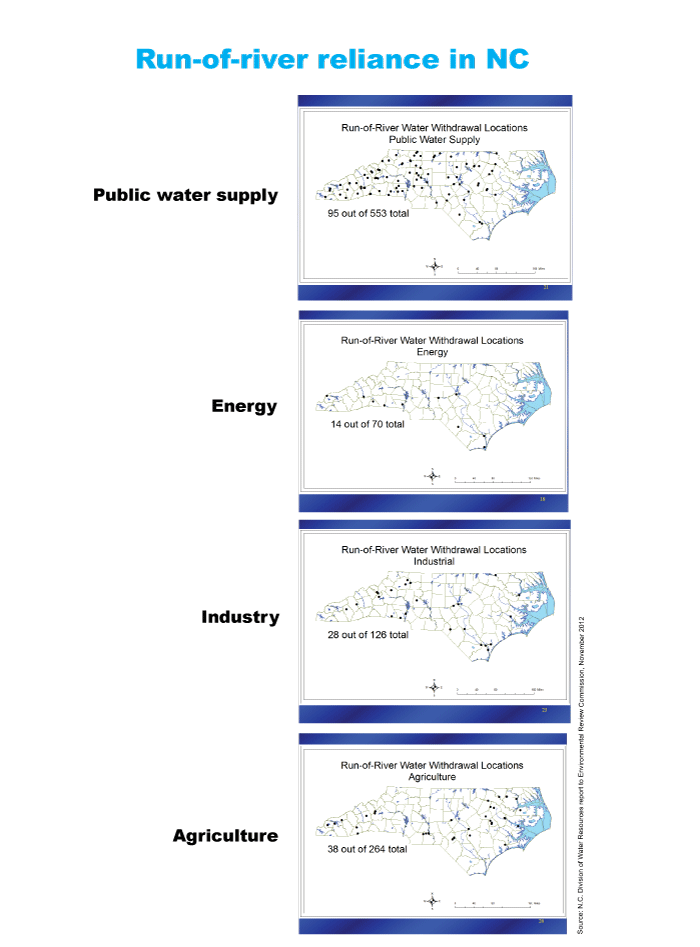Five common misconceptions about water rights in N.C.


Some fields of law have fairly clear boundaries. Not so with environmental law. In order to say anything with the least bit of clarity about the field of environmental law as such, you need some sense of what does and doesn’t count as part of the field. I have a simple model of what counts, for my own purposes. In this entry, I will explain my model of the field, and also talk about some of the limitations and unresolved boundary issues with my model. It starts with a recognition that law has long been concerned with two related things, natural resources and waste.
Read More →Since 2012, North Carolina has been on a fast and furious quest to create an entirely new regulatory regime for oil and gas production. The intertwined issues of whether and how to create such a regime to encourage fracking in North Carolina became and remain central enviro/political questions for the state. In 2012, a legislature newly controlled by the Republican Party (for the first time since Reconstruction) directed that regulations be put in place to encourage oil and gas exploration, and quickly. The central institutional actor charged with doing this has been a new State commission, the Mining and Energy Commission. The MEC is made up, as is typical in this and other states, of volunteer political appointees. Could a new group of volunteers really pull off the creation of an entirely new regulatory scheme in little over a year? Environmental rulemaking in North Carolina in the past fifty years has not been about speed or efficiency, and the issues involved in fracking and its regulation are highly technical and politically controversial. So many of us who watch and advise about state environmental law felt this process might just produce a train wreck.
Read More →